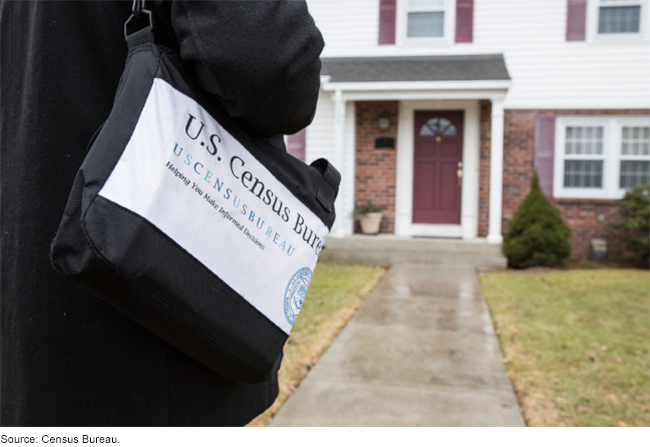2020 Census: Key Areas for Attention Raised by Compressed Timeframes
Fast Facts
We testified about late design changes the Census Bureau has made in response to the COVID-19 pandemic, including potentially ending data collection 30 days earlier than planned and accelerating its data processing (e.g., quality checks). These compressed timeframes raise a number of issues that will require the Bureau's attention, including:
Hiring and retaining enough staff to follow up with people who don't respond
Monitoring local census response rates to ensure areas with low rates are counted
Evaluating the risks associated with streamlining data processing
Ensuring timely and quality processing of census responses

Highlights
What GAO Found
In response to the COVID-19 pandemic and an August decision to end data collection about 30 days earlier than planned, the Census Bureau (Bureau) has made late design changes to the 2020 Census. The Bureau also announced it would accelerate its response processing operations, which improve the completeness and accuracy of census results. According to the Bureau, late design changes introduce risk to census quality and costs.
The compressed time frames for field operations and data processing raise a number of issues that will require the Bureau's attention. It will be important for the Bureau to
- hire and retain a sufficient workforce,
- manage operational changes to the Nonresponse Follow-up operation,
- ensure census coverage at the local level,
- evaluate risks in streamlining response processing, and
- ensure timely and quality processing of census responses.
As the 2020 Census continues, GAO will monitor the remainder of field operations and the Bureau's response processing operations.
Why GAO Did This Study
Like the rest of the country, the Bureau has been required to respond to COVID-19. Resulting delays, compressed time frames, implementation of untested procedures, and continuing challenges could undermine the overall quality of the count and escalate census costs.
GAO was asked to testify on its ongoing work on implementation of the 2020 Census. This testimony examines the cost and progress of key 2020 Census operations critical to a cost-effective enumeration.
Recommendations
Over the past decade, GAO has made 112 recommendations specific to the 2020 Census. To date, the Bureau has implemented 92. As of September 2020, 19 of the recommendations had not been fully implemented.
